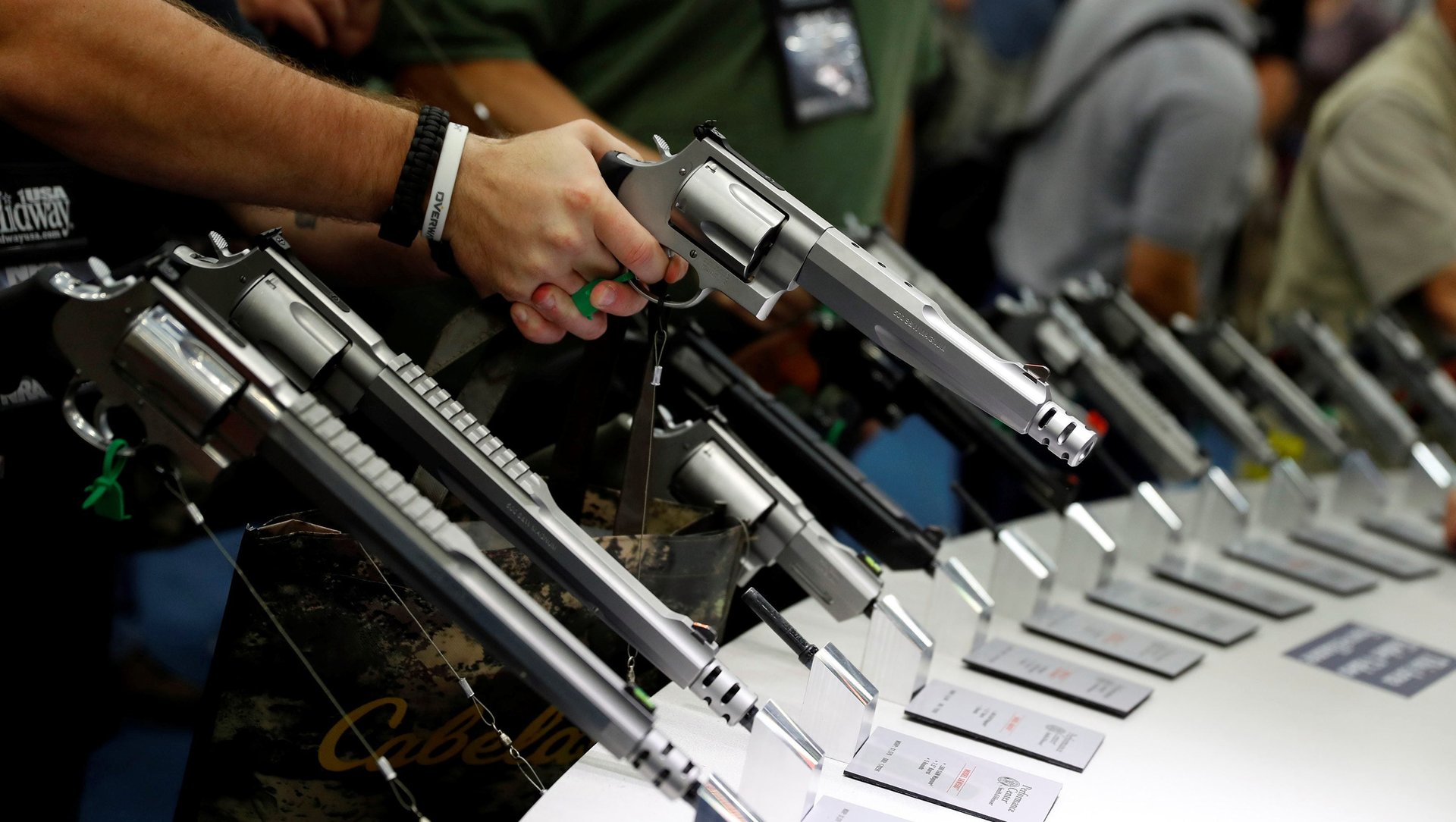Under US law, convicted domestic abusers cannot buy guns
News that gunman Stephen Paddock would frequently berate his girlfriend in public has taken on new meaning as investigators search for a motive in the Las Vegas mass shooting.


News that gunman Stephen Paddock would frequently berate his girlfriend in public has taken on new meaning as investigators search for a motive in the Las Vegas mass shooting.
As Quartz reported, there’s a common thread that connects these horrific incidents that occur all too frequently in the US: The overwhelmingly male perpetrators generally have a history of domestic abuse or misogynistic behavior.
Can people convicted of domestic abuse legally buy guns in the US?
Under federal law, the Domestic Violence Offender Gun Ban, often called the Lautenberg Amendment, bans possession of firearms by individuals convicted of a misdemeanor crime of domestic violence.
The statute defines a “misdemeanor crime of domestic violence” as any state or federal conviction that “has, as an element, the use or attempted use of physical force, or the threatened use of a deadly weapon, committed by a current or former spouse, parent, or guardian of the victim, by a person with whom the victim shares a child in common, by a person who is cohabiting with or has cohabited with the victim as a spouse, parent, or guardian, or by a person similarly situated to a spouse, parent, or guardian of the victim.”
Who does the Launtenberg Amendment cover?
This law therefore only covers people who have been convicted of such crimes: Nearly half of domestic violence cases in the US were never reported to the police. Nancy Leong, law professor at the University of Denver, told Quartz that the government should do more to keep weapons from the hands of people who would use them to hurt others.
As Quartz reported:
Even people who have merely been accused of domestic violence should have “extra scrutiny or delay associated with purchasing a gun,” she argues. According to US Bureau of Justice statistics, between 2006 and 2010, at least 46% of partner violence cases were not reported to police…The National Rifle Association might not like it, Leong acknowledges, but strict vetting is consistent with the exercise of other constitutionally-protected rights. “You need a permit to have a parade or a rally and exercise your first amendment rights,” she says. “This isn’t that hard.”
Beyond keeping guns away from domestic abusers, of course, far more needs to be done to stop domestic abusers in general. Leong puts this down to the attitude of the US criminal justice system, in which police and judges “tend to treat things like domestic violence as less serious than other kinds of crimes,” she says, and don’t use all the discretion they have to punish perpetrators.
The legal challenges
Despite efforts by gun lobbying groups, the Lautenberg Amendment has survived several legal challenges since it passed in 1996, including a case that made it before the US Supreme Court in June of last year. The court upheld the law in a 6-2 decision affirming that gun-ownership rights can be denied to those who are convicted of reckless acts of domestic violence.